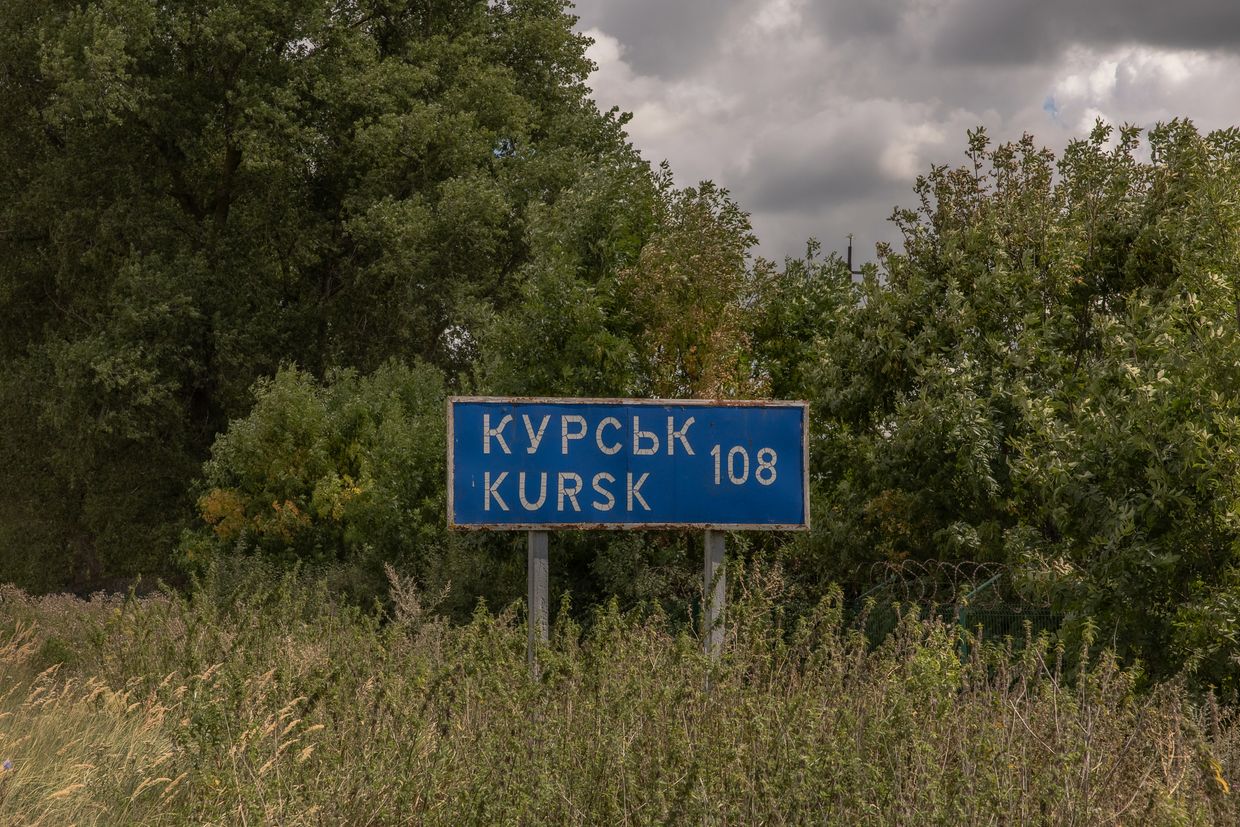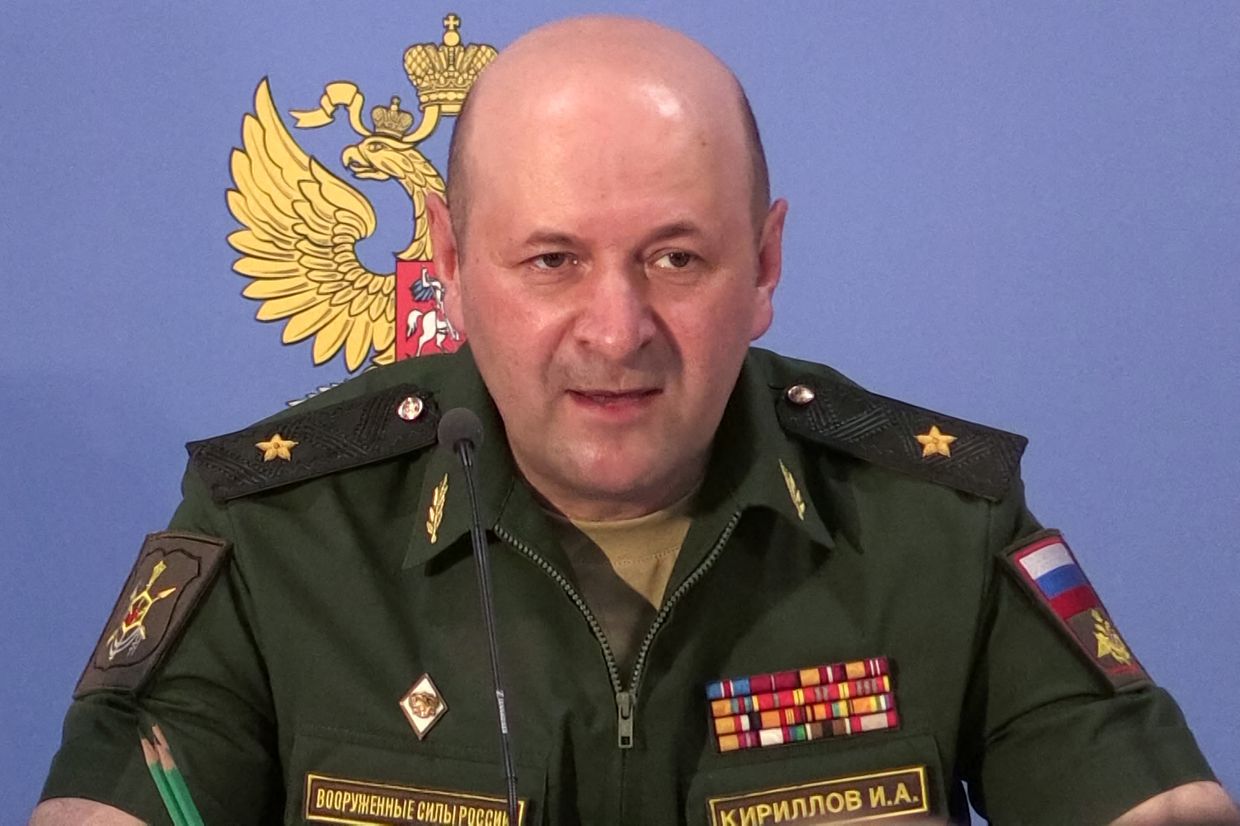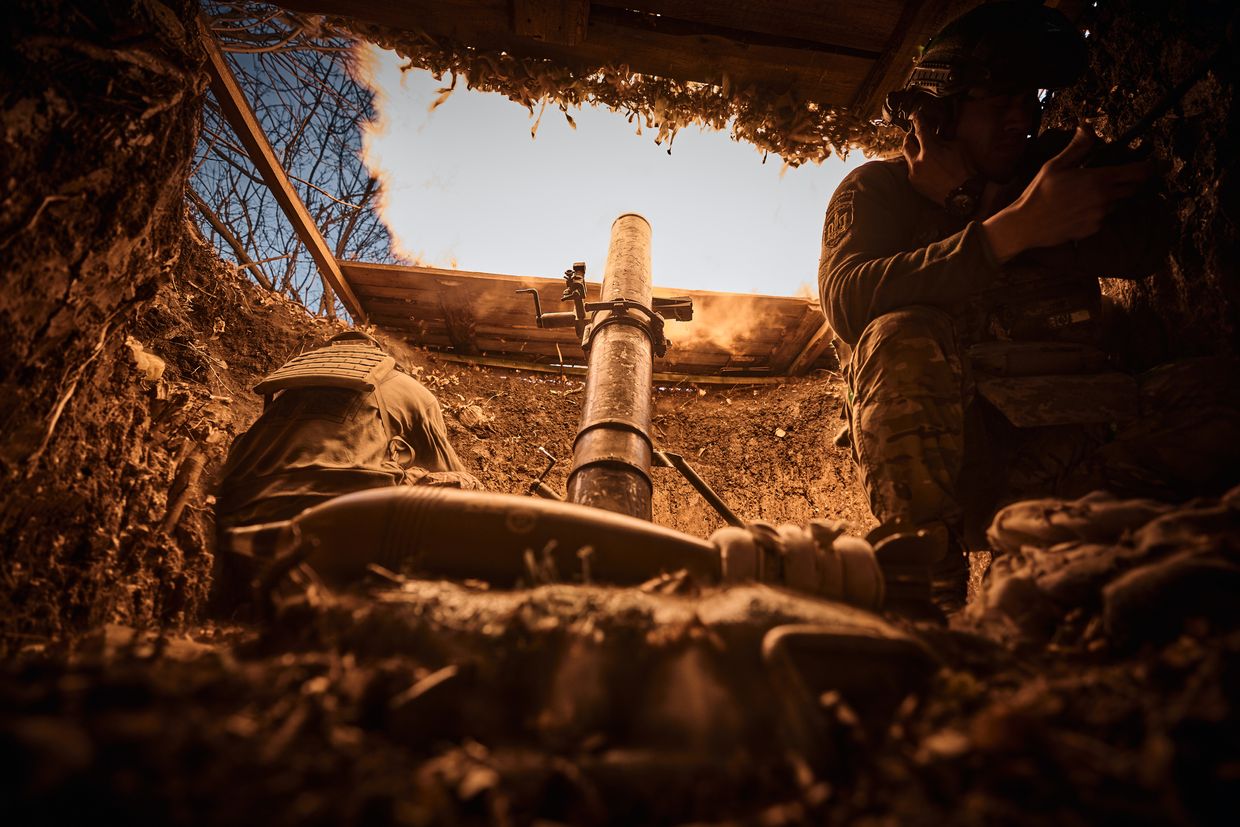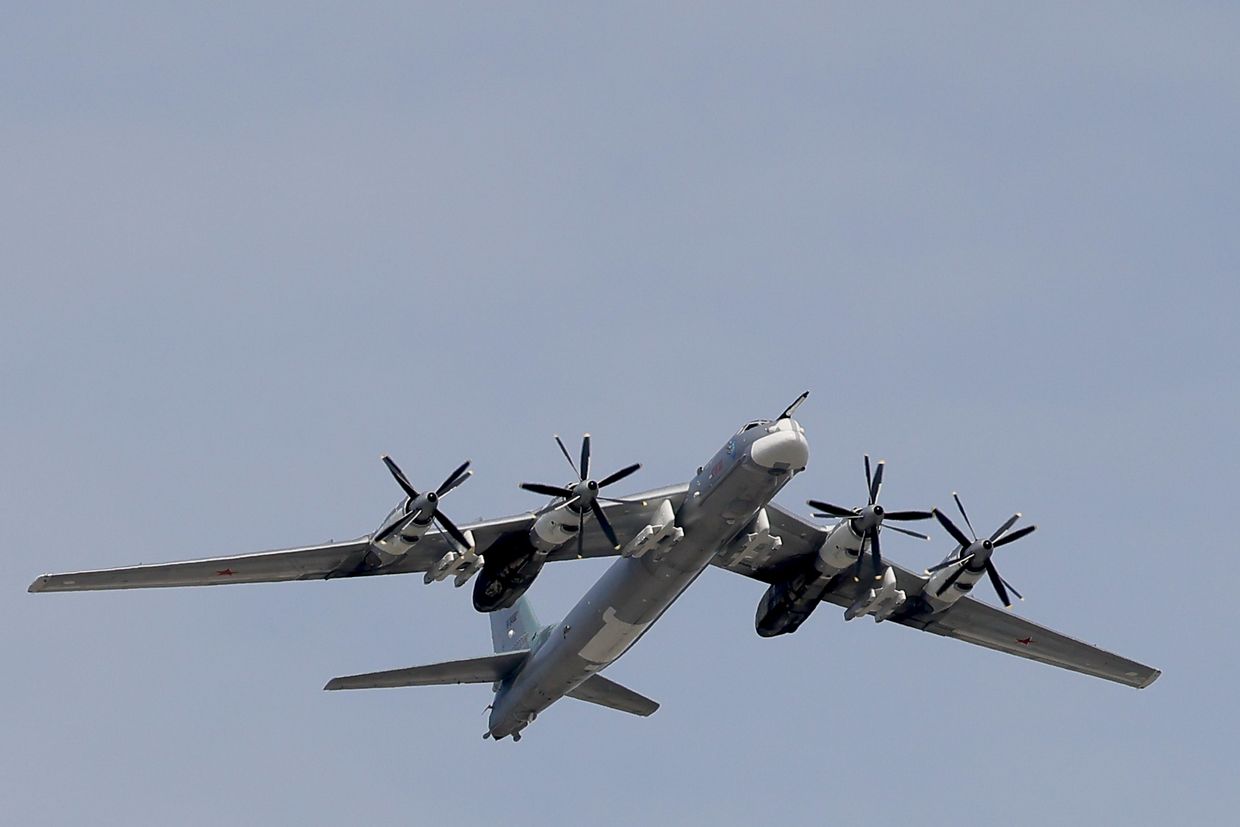Ukraine war latest: 'Couple hundred' North Korean troops lost fighting for Russia against Ukraine, AP reports

Key developments on Dec. 18:
- 'Couple hundred' North Korean troops lost fighting for Russia against Ukraine, AP reports
- Sweden 'does not exclude' more direct physical presence in Ukraine to bolster defense
- Russia detains two suspects over assassination of General Igor Kirillov, Kremlin media reports
- Peace talks with Russia only possible when Moscow runs out of resources, Ukraine’s Yermak says
- US may not be able to send remaining $5.6 billion in military aid to Ukraine before Trump takes office, NYT reports
A couple hundred North Korean troops have been killed or wounded fighting in Russia's Kursk Oblast against Ukraine, the Associated Press (AP) reported on Dec. 17, citing a senior U.S. military official.
The official did not give an exact figure but said the high casualty rate was in part due to the soldiers' lack of battle experience.
Russia has reportedly deployed over 10,000 North Korean troops to help oust Ukrainian troops fighting in Kursk Oblast since early August.
The full extent of North Korean losses is hard to ascertain, as President Volodymyr Zelensky said Russia is trying to hide the casualties.
Ukraine's Special Operation Forces said that they had killed 50 North Korean soldiers in Kursk Oblast in three days and injured 47 more.
Despite the losses within Russian and North Korean ranks, the Ukrainian soldiers fighting in Kursk Oblast seem to be increasingly on the back foot, facing a Russian advantage in manpower and equipment.
Commander-in-Chief Oleksandr Syrskyi said on Dec. 17 that Russian and North Korean forces are carrying out an intensive offensive in Kursk Oblast for the third day in a row.
"For the third day, Russian forces have been conducting intensive offensive operations in Kursk Oblast, actively using North Korean units," Syrskyi said in an online address to the Congress of Local and Regional Authorities held in Lviv, according to Interfax-Ukraine.
Citing Ukrainian soldiers, The Economist wrote that Ukraine likely lost around half of the territory it had captured in the initial phase of the operation in August and September.
An officer talking to the outlet connected this development to the redeployment of elite units that first spearheaded the offensive.
Ukraine likely seeks to hold on to a piece of Russian territory as a possible bargaining chip ahead of U.S. President-elect Donald Trump's expected push for peace negotiations.
Sweden 'does not exclude' more direct physical presence in Ukraine to bolster defense
Sweden does not exclude the possibility of expanding its physical presence in Ukraine to strengthen the country's defenses, Swedish Defense Minister Pal Jonson said in an interview with the Kyiv Independent published on Dec. 18.
In response to a question over whether Sweden would potentially take part in a more direct physical presence in Ukraine amid talks of potentially deploying peacekeepers to monitor a possible ceasefire, Jonson said he doesn't "exclude that possibility."
The minister noted that Sweden already has a physical presence in Ukraine through its defense procurement agency that works with the Ukrainian government to purchase military equipment.
Jonson also said Sweden does not rule out the possibility of conducting military training inside Ukraine.
As of October, Sweden's military support to Ukraine has amounted to around $4.4 billion since the start of the full-scale invasion.
Jonson stressed the necessity of bolstering Ukraine’s defenses against Russian aggression and said he supports extending the mandate of the EU Military Assistance Mission (EUMAM), which coordinates military support for Kyiv.
He called for urgent measures to secure peace in Ukraine by 2025, describing the situation as “absolutely dire and extremely important.”
“The stakes in this war are enormous for the Ukrainian people, but also for the rest of Europe,” he said.

Russia detains two suspects over assassination of General Igor Kirillov, Kremlin media reports
Russian security forces have detained two suspects over the assassination of a top Kremlin general and his assistant in Moscow, Russian media reported on Dec. 18.
Lieutenant General Igor Kirillov was killed in Moscow on Dec. 17, with a bomb attached to a scooter. The Security Service of Ukraine (SBU) claimed responsibility for the attack.
According to Kommersant and several other Russian outlets cited by the independent news website Meduza, the two suspects carried out the killings on the orders of the SBU.
They were detained by police who saw surveillance cameras’ footage from the scene which recorded a pair of suspicious cars.
Russian Telegram channel 112 said the suspects had already confessed to authorities.
Russian officials have not yet announced the conclusion of the investigation. The Kyiv Independent could not independently verify the claims.
Kirillov, 54, was the head of the Russian Armed Forces' radiation, chemical, and biological defense troops (RKhBZ).
A day before his assassination, Ukrainian prosecutors charged Kirillov in absentia with the use of banned chemical weapons in Ukraine.
Moscow's forces have been increasingly deploying gas attacks against Ukrainian troops, the Kyiv Independent reported in August, and Kirillov has since been sanctioned by the U.K. and Canada for his role in their use.
"Kirillov was a war criminal and a completely legitimate target, as he gave orders to use banned chemical weapons against Ukrainian soldiers," an SBU source told the Kyiv Independent on Dec. 17. "Retribution for war crimes is inevitable."
Peace talks with Russia only possible when Moscow runs out of resources, Ukraine’s Yermak says
Peace talks between Kyiv and Moscow will only be possible when Russia has run out of resources to fight its full-scale war, Andriy Yermak, head of the Presidential Office, said on Dec. 17.
"I would like to emphasize once again that only the strong are helped, so we must remain strong," he told the Congress of Local and Regional Authorities in Lviv, in comments reported by Radio Free Europe/Radio Liberty (RFE/RL).
"Real negotiations for a lasting peace will begin only when the enemy no longer has the resources to continue the war," he added.
With no military plan in sight to retake lost territories, pressure is mounting on Kyiv to enter into peace negotiations with Russia.
Yermak warned that any concessions to Russia would only allow it to replenish its army and launch a new offensive in the future.
"If Russia is not forced to make a just peace, there will be no peace. There will be a pause and Moscow will use this pause to restore forces and continue the offensive," Yermak said.
During the same event, President Volodymyr Zelensky slammed Hungarian Prime Minister Viktor Orban for negotiating with Moscow about peace over Ukraine’s head "without leverage."
Orban flew to Moscow in July during a so-called "peace mission" and phoned Russian President Vladimir Putin in December.
"How will he put pressure on Putin? With a joke, a smile? Let him keep it," Zelensky said.
Slovak President Peter Pellegrini, also argued in December that achieving peace in Ukraine would likely require accepting partial territorial losses and called for the immediate start of peace negotiations.
However, some of Ukraine’s European allies rejected such ideas, with Poland’s Foreign Minister Radoslaw Sikorski earlier this month arguing that Western nations should push Russia, not Ukraine, into peace negotiations to stop the war.
US may not be able to send remaining $5.6 billion in military aid to Ukraine before Trump takes office, NYT reports
The U.S. may run out of time to deliver the remaining $5.6 billion in military aid allocated to Ukraine before Donald Trump takes office next month, The New York Times (NYT) reported on Dec. 17.
"We will continue to do drawdown packages for the remainder of this administration," a U.S. official told the NYT.
"But $5.6 billion is a substantial amount of authority, so I would certainly anticipate that there could be remaining authority that would transition and be available for the next administration to use," they added.
Although the outgoing administration of President Joe Biden plans to allocate some funds from the presidential drawdown authority, it is unlikely to spend the whole amount.
The presidential drawdown authority is a scheme that allows any U.S. President to transfer weapons from the Pentagon’s own stockpile instead of ordering them from manufacturers which would take precious time.
The U.S. gave more than $60 billion worth of military aid to Ukraine during the Biden administration.
Trump’s support for Ukraine hangs in the air as analysts and politicians try to gauge his plans to bring peace to Ukraine, as he promised to end the war within "24 hours" after reelection without revealing details.
There are concerns that Trump's victory might lead to the U.S. withdrawing its military support for Ukraine, leaving it up to European allies to help Kyiv resist Russia’s war.















